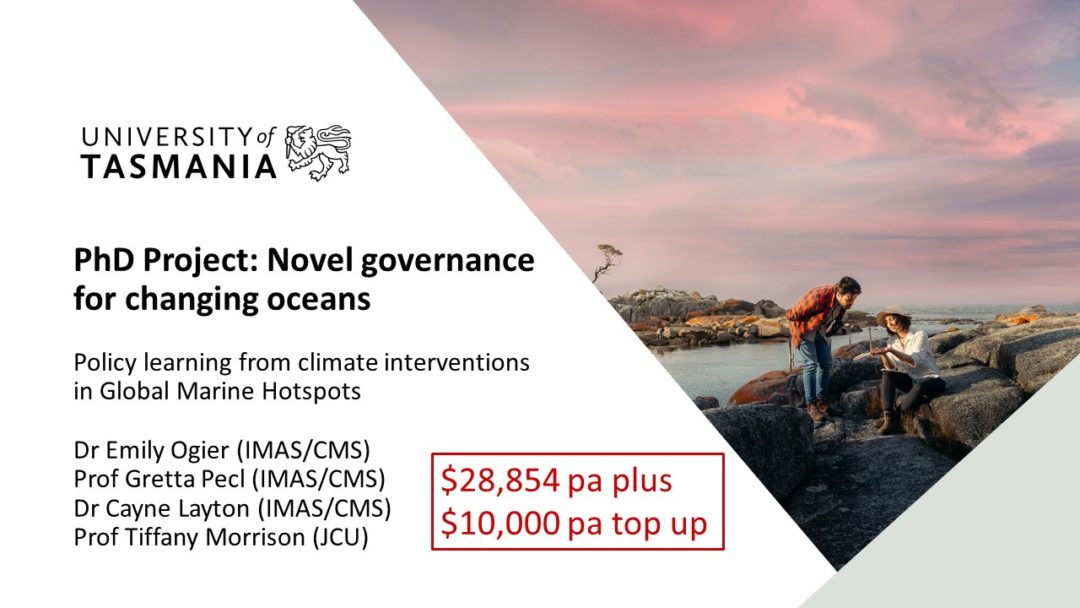Policy learning from climate interventions in Global Marine Hotspots
About the project:
To sustain the significant benefits of marine ecosystems into the future, policymakers must design and implement an ever-expanding range of marine interventions at a variety of ecological and governance scales. This includes those that propose to mitigate climate change (e.g., seaweed aquaculture and carbon trading), as well as those promoting adaptation and resilience (e.g., assisted marine animal and plant migration (Morrison et al 2020)). Policymakers must also navigate radically different interests in marine ecosystems, and at the same time, the risks of failure to intervene responsibly are significantly higher. This highlights the critical role of policy learning in advancing governance transformation, whereby governance moves from incremental improvement of established strategies, to adjustment for evolving conditions, and finally to implementation of new strategies (Dunlop and Radaelli 2018).
This project will examine the forms and role of policy learning arising from planning, implementing and evaluating climate interventions within specific sites experiencing global warming. The project will use planning and management for the marine estate in Tasmania, Australia, as a case study in which a range of place-based interventions (e.g., kelp restoration, fisheries stock enhancement) have been led by public, private and community actors. The project will identify the array of interventions, their scales of intensity of cause and effects, the synergistic effects of groups or sequences of interventions, and the marine management goals they were designed to address. It will then examine the role of current institutional and policy conditions (such as policy framing, scaling and core beliefs, local and multi-scale networks) across the suite of interventions and the extent of any policy learning. Drawing on the emergent concept of responsible innovation (which includes processes for considering risk, feasibility and ethics), the project will identify properties of site and estate-level governance which enhance or hinder policy learning for more responsible intervention.
Primary supervisor:
Prof Gretta Pecl
Please find more information about eligibility, selection criteria and application process here
